A clean-up is continuing days on from a pollution spill which killed young fish stocks in a tributary burn of one of Scotland’s best salmon rivers.
Environment agency Sepa say they are still to ascertain the full impact of the incident on the River North Esk at the border of Angus and Aberdeenshire.
But the owner of the nearest salmon beat branded it a “disaster”.
Symon Jacobsen of Balmakewan Fishings says its impact could have been mitigated if action had been taken more quickly.
The spill has led to the death of many young fish.
And local ghillies fear the effect on invertebrate populations will further impact already under-pressure fish stocks.
Delay in details emerging
The incident happened at the Black Burn near Luthermuir on Friday.
A tanker containing digestate is believed to have ruptured.
The stretch runs into the Luther Water, which joins the North Esk at Northwaterbridge on the Angus/Aberdeenshire border.
“This happened about ten in the morning, but it was about 6.30 in the evening when we found out anything about it,” said Mr Jacobsen.
“I sent my ghillie out to investigate and it was obvious something was up.
“But even 26 hours after the initial incident there was still stuff pouring down the stretch, it was horrible.
“It was a bank holiday weekend and Sepa left a message on the fishery board’s answering machine.
“They didn’t pick it up and weren’t able to tell the beat owners about it – what good is that?
“No-one intended this to happen – it was an accident, but there are questions to be asked.
“If they had shouted about this quickly they could have bunded this upstream and contained it there.
“It would have still been a disaster for the burn, but it wouldn’t have reached so far and gone on for so long.
“I think there has been a mishandling of the way this was dealt with.”
Discolouration and lack of fish movement
He added: “The good news is that most of the young small salmon have gone to sea already.”
But the spill has killed many young fish.
It may also have contributed to the demise of adult salmon already weakened by a fungal infection called Saprolegnia which has been present in both the North and South Esks.
Ghillie Stuart Paton of the nearby Canterland Fishings said he was shocked by the impact of the spill.
“We weren’t told about it, but noticed there was no movement in the river and realised there was a discolouration in the water.
“We’re lucky the bulk of the salmon smolts have already left,” he said.
“But what we’re noticing is a lot of dead invertebrates.
“At the weekend the river was very quiet, you knew something had happened.
“The water is clearer and there does seem to be some fish moving now.
“But my main concern is the ecological impact on not only the juvenile fish, but what they are feeding on.”
Sepa response
Ashley Clunie, unit manager of the Fife, Angus and Dundee team at Scottish Environment Protection Agency (Sepa) said: “Sepa were notified of a spill of digestate around farm steadings near Luthermuir on Friday afternoon, impacting the Black Burn.
“Our officers have been in attendance at the site since Friday and are undertaking investigations while the operator carries out remediation works.”
Dr Craig MacIntyre of the Esk District Salmon Fishery Board said: “Sepa are currently investigating the incident, and therefore we cannot comment on the cause at the moment.
“Sepa have informed us that the cause of the pollution has been contained.
“The board is assessing any damage to fish stocks, and will report to our members when we know more.”
Gems of Angus angling
Balmakewan hosted the 2023 season opening ceremony in February.
The area is popular with anglers from all over the world, with many returning year after year to their favourite beats.
But both North and South Esks are battling the fall in numbers of salmon returning to Scottish rivers from their marine migration.
North Atlantic Salmon Conservation Organisation data has shown the figure is around half that of the 1970s.
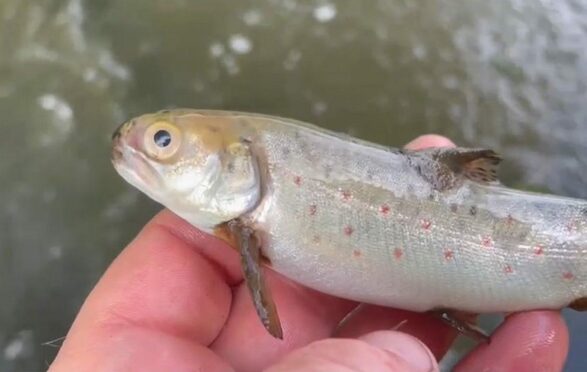
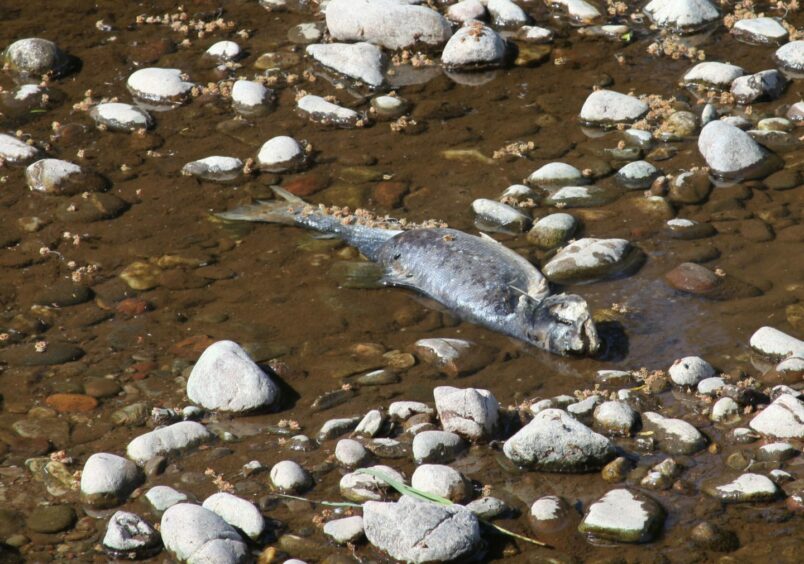
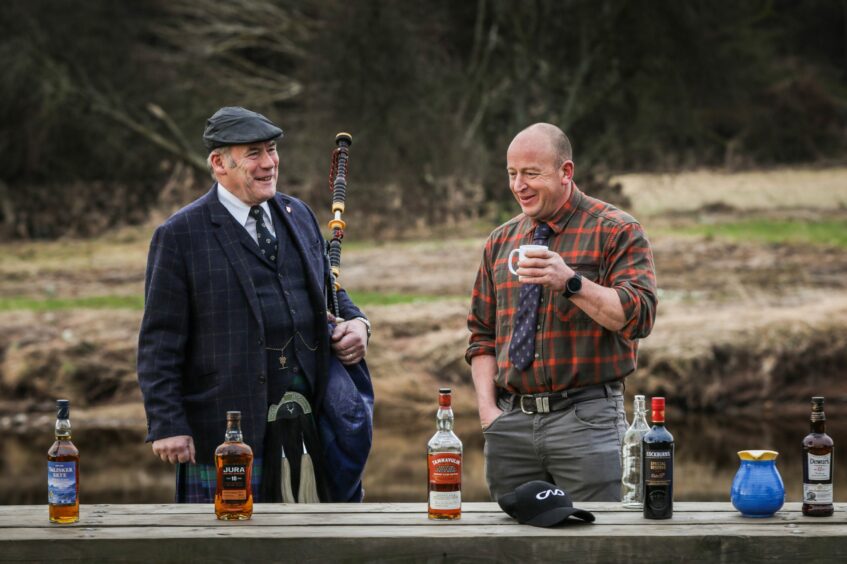
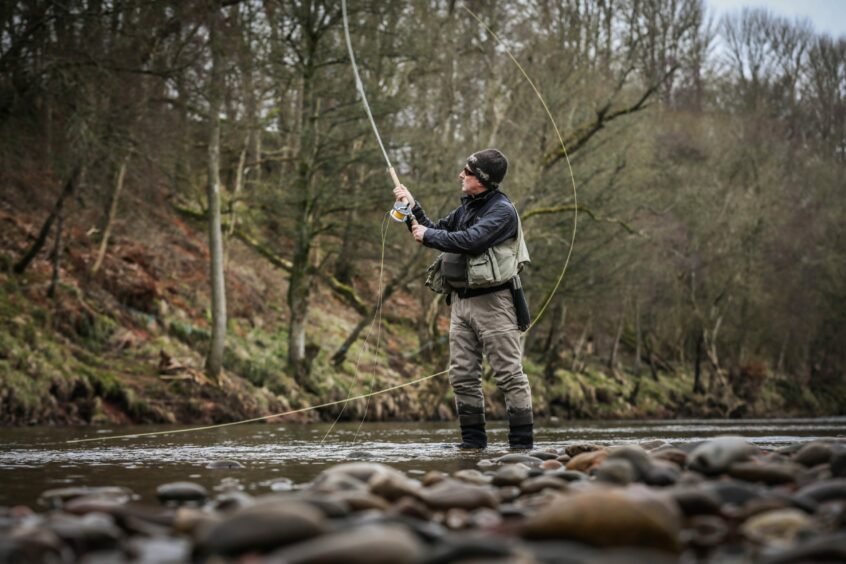
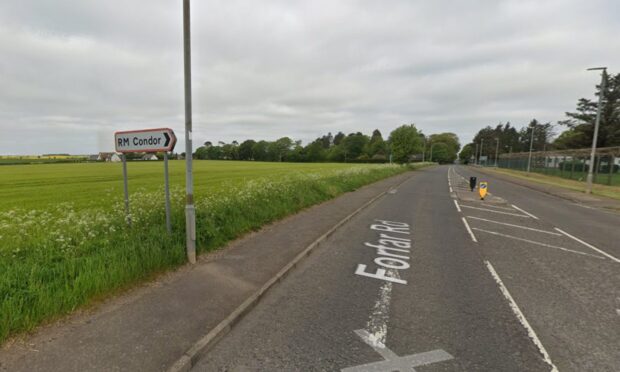

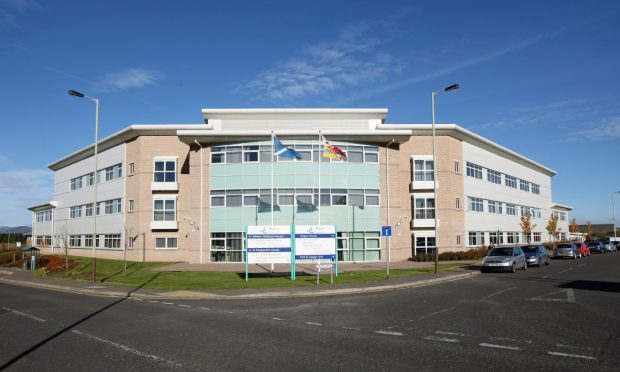





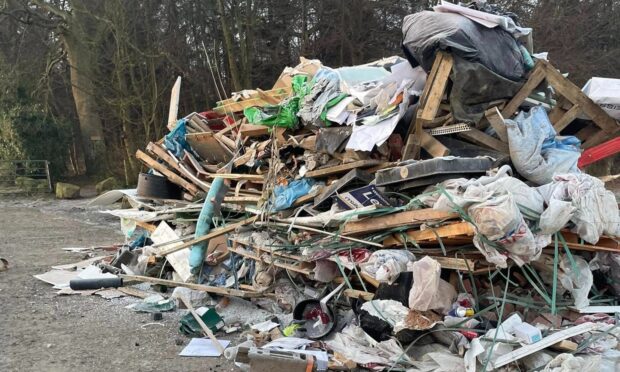

Conversation